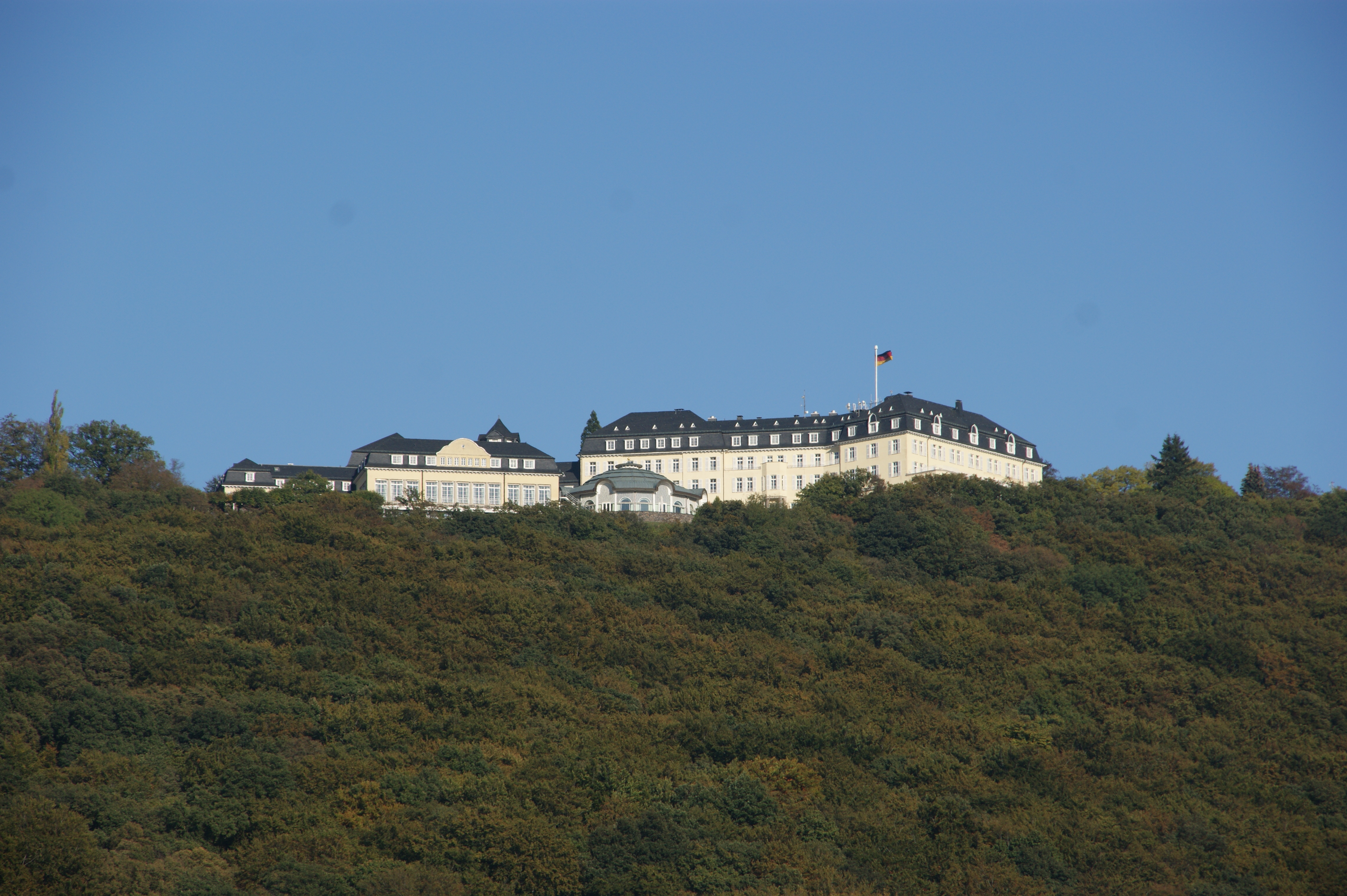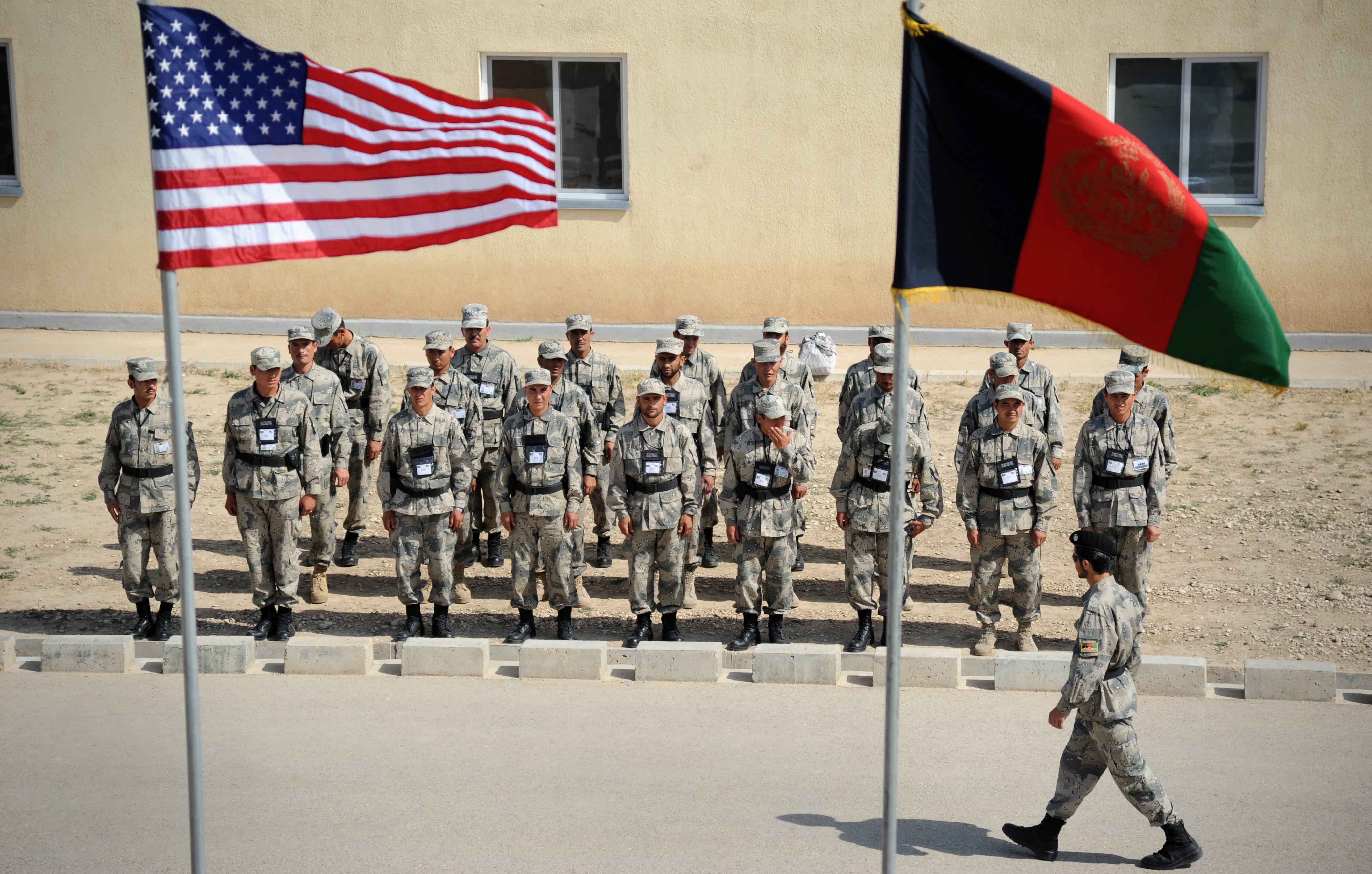|
Constitutional Loya Jirga
Afghan leaders who met at the December 2001 Bonn Conference which picked Hamid Karzai to lead the Afghan Transitional Authority Afghan may refer to: *Something of or related to Afghanistan, a country in Southern-Central Asia *Afghans, people or citizens of Afghanistan, typically of any ethnicity ** Afghan (ethnonym), the historic term applied strictly to people of the Pas ... also agreed that a Constitutional Loya Jirga should be convened to draft a new constitution. The Emergency Loya Jirga of 2002 set up an Afghan Constitutional Commission, of 35 members, which sat from October 2002 until March 2003, prior to submitting their draft to President Karzai. That draft was made public in November 2003. 502 delegates were selected, via regional caucuses, to participate in the Constitutional Loya Jirga to debate, amend the draft. In her thesis at the Naval Postgraduate School Zoe Sherman described the composition of the Constitutional Loya Jirga of 2002 as being unlike any ... [...More Info...] [...Related Items...] OR: [Wikipedia] [Google] [Baidu] |
Bonn Conference
After Operation Enduring Freedom in which the Taliban government was toppled in Afghanistan, in December 2001, the German city of Bonn hosted a conference – widely known as the Bonn Conference – of Afghan leaders at Hotel Petersberg, to choose the leader of an Afghan Interim Authority and establish an initial political agreement for reorganising the governmental institutions of Afghanistan. The Conference chose Hamid Karzai, who was subsequently elected President in 2004. Karzai subsequently appointed many anti-Taliban allies and regional leaders to senior posts within the interim government and to senior posts in the Provincial governments. The Conference set up the Bonn Agreement for institutional reorganisation. Substance The Conference brought together many adversaries with a common enemy: the Taliban. The US, Russia, and Iran, fervent enemies, all sat down together and cooperated against the Taliban. So too did rivals India and Pakistan. Also included were represent ... [...More Info...] [...Related Items...] OR: [Wikipedia] [Google] [Baidu] |
Burhanoddin Rabbani
Burhānuddīn Rabbānī (Persian: ; 20 September 1940 – 20 September 2011) was an Afghanistani politician and teacher who served as President of Afghanistan from 1992 to 1996 (in exile from 1996 to 2001). Born in the Badakhshan Province, Rabbani studied at Kabul University and worked there as a professor of Islamic theology. He formed the Jamiat-e Islami (''Islamic Society'') at the university which attracted then-students Gulbuddin Hekmatyar and Ahmad Shah Massoud, both of whom would eventually become the two leading commanders of the Afghan mujahideen in the Soviet–Afghan War from 1979. Rabbani was chosen to be the President of Afghanistan after the end of the former communist regime in 1992. Rabbani and his Islamic State of Afghanistan government was later forced into exile by the Taliban, and he then served as the political head of the Northern Alliance, an alliance of various political groups who fought against the Taliban regime in Afghanistan. During his time in the ... [...More Info...] [...Related Items...] OR: [Wikipedia] [Google] [Baidu] |
Sajjad Mohseni
Sajjad is a given name and a surname. Notable people with the name include: Given name * Imam Sajjad (Ali ibn Husayn Zayn al-Abidin), 4th Imam of Shia Islam * Syed Sajjad Haider Yaldram (1880–1943), Urdu short story writer, travel writer, translator, linguist, essayist, and humorist * Sajjad Afghani, Kashmiri militant and Commander-in-Chief of Harkat Ul Ansar * Sajjad Akbar (born 1961), Pakistani cricketer * Sajjad Ali, Pakistani semi-classical, pop singer, film actor, director and producer * Sajjad Anoushiravani (born 1984), Iranian weightlifter * Sajjad Fazel (born 1991), Tanzanian clinical pharmacist, public health researcher, health columnist * Sajjad Ganjzadeh (born 1992), Iranian karateka * Sajjad Gul, Pakistani film producer, media mogul * Sajjad Hussain (cricketer, born 1980), Indian cricketer * Sajjad Hussain (cricketer, born 1986), Pakistani cricketer * Sajjad Hussain (composer), Indian music director * Sajjad Karim, British Asian politician * Sajjad Gharibi (born 1 ... [...More Info...] [...Related Items...] OR: [Wikipedia] [Google] [Baidu] |
Jowzjan
Jowzjan, sometimes spelled Jawzjan or Jozjan (Dari: ), is one of the thirty-four provinces of Afghanistan, located in the north of the country bordering neighboring Turkmenistan. The province is divided into 11 Districts of Afghanistan, districts and contains hundreds of villages. It has a population of about 613,481, which is multi-ethnic and mostly agriculturalists. Sheberghan is the capital of Jozjan province. History The province is named after the early medieval region and principality of Juzjan. Between the early 16th century and mid-18th century, the area was ruled by the Khanate of Bukhara. It was conquered by Ahmad Shah Durrani and became part of the Durrani Empire in or about 1750, which formed to the modern state of Afghanistan. The area was untouched by the British Raj, British during the three Anglo-Afghan War, Anglo-Afghan wars that were fought in the 19th and 20th centuries. Recent history Following a series of changing allegiances and falling out with Uzbek warlor ... [...More Info...] [...Related Items...] OR: [Wikipedia] [Google] [Baidu] |
Mohammad Azam Dadfar
Muhammad ( ar, مُحَمَّد; 570 – 8 June 632 CE) was an Arab religious, social, and political leader and the founder of Islam. According to Islamic doctrine, he was a prophet divinely inspired to preach and confirm the monotheistic teachings of Adam, Abraham, Moses, Jesus, and other prophets. He is believed to be the Seal of the Prophets within Islam. Muhammad united Arabia into a single Muslim polity, with the Quran as well as his teachings and practices forming the basis of Islamic religious belief. Muhammad was born approximately 570CE in Mecca. He was the son of Abdullah ibn Abd al-Muttalib and Amina bint Wahb. His father Abdullah was the son of Quraysh tribal leader Abd al-Muttalib ibn Hashim, and he died a few months before Muhammad's birth. His mother Amina died when he was six, leaving Muhammad an orphan. He was raised under the care of his grandfather, Abd al-Muttalib, and paternal uncle, Abu Talib. In later years, he would periodically seclude hims ... [...More Info...] [...Related Items...] OR: [Wikipedia] [Google] [Baidu] |
Nimroz
Nimruz or Nimroz (Dari: ; Balochi: ) is one of the 34 provinces of Afghanistan, located in the southwestern part of the country. It lies to the east of the Sistan and Baluchestan Province of Iran and north of Balochistan, Pakistan, also bordering the Afghan provinces of Farah and Helmand. It has a population of about 186,963 people. The province is divided into five districts, encompassing about 649 villages. The city of Zaranj serves as the provincial capital and Zaranj Airport, which is located in that city, serves as a domestic airport for the province. The recently-built Kamal Khan Dam is located in Chahar Burjak District. The name ''Nimruz'' means "mid-day" or "half-day" in Balochi. The name is believed to indicate that the meridian cutting the old world in half passes through this region. Nimruz covers 43,000 km2. It is the most sparsely populated province in the country, located in the Sistan Basin. A substantial part of the province is the barren desert area of ... [...More Info...] [...Related Items...] OR: [Wikipedia] [Google] [Baidu] |
Mohammad Esmael Saifi
Muhammad ( ar, مُحَمَّد; 570 – 8 June 632 CE) was an Arab religious, social, and political leader and the founder of Islam. According to Islamic doctrine, he was a prophet divinely inspired to preach and confirm the monotheistic teachings of Adam, Abraham, Moses, Jesus, and other prophets. He is believed to be the Seal of the Prophets within Islam. Muhammad united Arabia into a single Muslim polity, with the Quran as well as his teachings and practices forming the basis of Islamic religious belief. Muhammad was born approximately 570CE in Mecca. He was the son of Abdullah ibn Abd al-Muttalib and Amina bint Wahb. His father Abdullah was the son of Quraysh tribal leader Abd al-Muttalib ibn Hashim, and he died a few months before Muhammad's birth. His mother Amina died when he was six, leaving Muhammad an orphan. He was raised under the care of his grandfather, Abd al-Muttalib, and paternal uncle, Abu Talib. In later years, he would periodically seclude himsel ... [...More Info...] [...Related Items...] OR: [Wikipedia] [Google] [Baidu] |




.jpg)